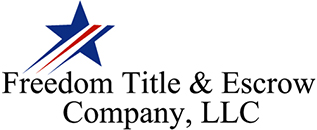What Is Title Insurance
Some common examples of problems covered by an Owner’s Title Insurance Policy include:
- Improper execution of documents
- Mistakes in recording or indexing of legal documents
- Forgeries and fraud
- Undisclosed or missing heirs (including divorces of previous owners of the home)
- Unpaid taxes and assessments
- Unpaid judgments and liens
- Unreleased mortgages
- Mental incompetence of grantors on the deed
- Impersonation of the true owners of the land by fraudulent persons
- Refusal of potential purchaser to accept title based upon condition of title
Your Title Goes Here
Your content goes here. Edit or remove this text inline or in the module Content settings. You can also style every aspect of this content in the module Design settings and even apply custom CSS to this text in the module Advanced settings.
What can make the Title to my home defective?
When you purchase your home, you take “title” to your property. Any number of problems that remain undisclosed after even the most meticulous search of public records can make a title defective. These hidden “defects” are dangerous indeed because you may not learn of them for many months or years. Yet they could force you to spend substantial sums on a legal defense and still result in a potential lawsuit, significant financial loss, or even the loss of your property.
Won’t the Lender’s Title Insurance Policy protect me?
No, there are two types of Title Insurance; the lender’s policy, and the owner’s policy. Your lender very likely will require that you purchase a Lender’s Title Insurance Policy on their behalf. This policy only insures that the lender has a valid, enforceable lien on the property. Most lenders require this type of insurance, and typically require the borrower to pay for it.
An Owner’s Title Insurance Policy, on the other hand, is designed to protect you from title defects that existed prior to the issue date of your policy. Title troubles, such as improper estate proceedings or pending legal action, could put your equity at serious risk. If a valid claim is filed, in addition to financial loss up to the face amount of the policy, your Owner’s Title Insurance Policy covers the full cost of any legal defense of your title.
